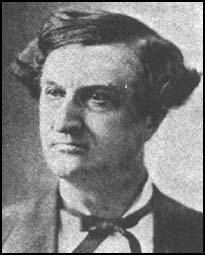Zachariah Chandler

Zachariah Chandler was born in Bedford, New Hampshire, on 10th December, 1813. After working as a schoolteacher he moved to Detroit, Michigan, where he started his own successful dry goods business.
Chandler, a member of the Whig Party, was active in the anti-slavery movement. He was elected mayor of Detroit in 1851 but failed in his bid to become governor of Michigan in 1852.
An early member of the the Republican Party, Chandler was elected to the Senate in 1857. He soon became a leading figure in the group that became known as the Radical Republicans.
In July, 1861, Chandler was a member of a group of politicians, including Benjamin Wade, Lyman Trumbull and James Grimes, who witnessed the Battle of Bull Run. The battle was a disaster for the Union forces and at one stage Chandler came close to being captured by the Confederate Army. After arriving back in Washington, Chandler was one of those who led the attack on the incompetence of the leadership of the Union Army. Chandler was also highly critical of President Andrew Johnson and voted for his impeachment in 1868.
In 1875 President Ulysses S. Grant appointed Chandler as his Secretary of the Interior. He left office but soon afterwards was re-elected to the Senate and served from 22nd February, 1879 until his death in Chicago on 1st November, 1879.
Primary Sources
(1) The conservative New York Herald published an article about the Radical Republicans during the early part of the American Civil War (23rd July, 1861)
Who are they? They belong to that fanatical abolitionist clique who are labouring to divert this war from its legitimate objective into an exterminating crusade against Southern slavery.
(2) Zachariah Chandler, letter to Henry W. Lord (27th October, 1861)
Lincoln means well but has no force of character. He is surrounded by Old Fogy Army officers more than half of whom are downright traitors and the other one half sympathize with the South. One month ago I began to doubt whether this accursed rebellion could be put down with a Revolution in the present Administration.
